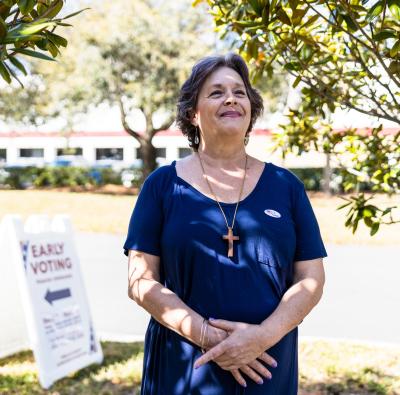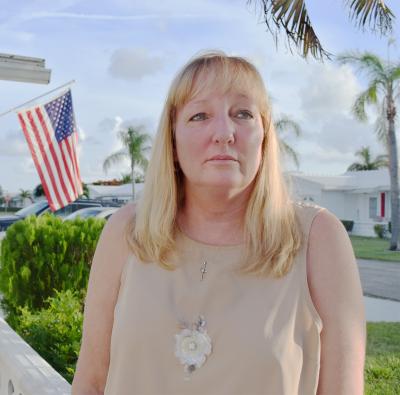On November 6, 2018, voters in Florida passed a constitutional amendment automatically restoring voting rights to people with felony convictions. The measure, known as Amendment 4, restored voting rights “upon completion of all terms of sentence, including parole or probation.” It passed by an almost two-thirds margin.
In response to Amendment 4, the state legislature passed Senate Bill 7066 (“SB 7066”), which redefined “all terms of sentence” to include the payment of restitution, fines, and fees (also known as “legal financial obligations” or “LFOs”). Specifically, SB 7066 requires the payment of all LFOs ordered by the court “as a part of the sentence or that are ordered by the court as a condition of any form of supervision.”
SB 7066 was signed into law by the governor on June 28, 2019. CLC filed a lawsuit challenging the statute the same day.
The new law erects an array of unconstitutional barriers to the right to vote. SB 7066 conditions the right to vote on the basis of wealth—people with the financial means to pay their LFOs have their rights restored, while those without means remain disenfranchised. Discriminating between voters on the basis of wealth violates the Fourteenth Amendment, and conditioning the right to vote on payment of fines and fees constitutes a poll tax, in violation of the Twenty-Fourth Amendment.
Moreover, the law makes it extraordinarily difficult for people with past convictions to determine their eligibility to vote. First, the law is unclear about which LFOs incurred must be paid before a person regains their right to vote. Second, the statute provides no mechanism for individuals to separate out their disqualifying and non-disqualifying LFOs so that they can determine their eligibility to vote (for instance, if someone has fees connected to both felony and misdemeanor convictions). Nor does it provide Floridians with access to the records they would need to determine their eligibility to vote. Third, SB 7066 provides for an updated state voter registration form that fails to specify the eligibility requirements created by the new law. And yet, the statute subjects individuals who err in determining their eligibility to vote to the threat of criminal prosecution. The vagueness and ambiguity of the law, coupled with the threat of criminal liability, plainly violate the First and Fourteenth Amendments.
CLC has challenged the law in court on behalf of plaintiff Bonnie Raysor, a citizen of Boynton Beach, Florida, with past felony convictions. Ms. Raysor thought she had regained her right to vote when Amendment 4 passed and reached out for help to understand her rights under the new constitutional amendment. Now, however, under SB 7066, Ms. Raysor is barred from registering to vote in Florida because she has $4,260 in outstanding fines and fees related to her felony convictions and past misdemeanor charges.
CLC is challenging the law on behalf of Ms. Raysor and all those who would otherwise be eligible to register to vote in Florida but are denied the right to vote under SB 7066 because they have outstanding fines, fees, or restitution.
Our case, Raysor v. Lee, was consolidated with three other cases in June of 2019 under the name Jones v. DeSantis.

